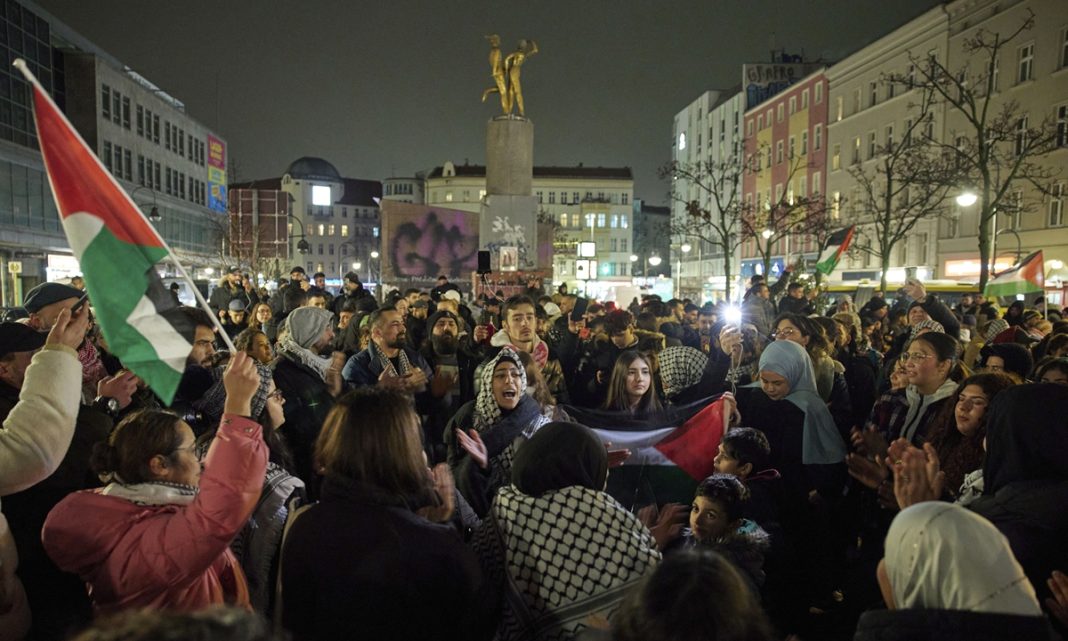
BEIJING: China welcomes the Gaza ceasefire agreement and hopes that this agreement will be implemented effectively and that there will be a full and permanent ceasefire in Gaza, Guo Jiakun, a spokesperson of China’s Ministry of Foreign Affairs, said in response to a question about China’s view on Israel-Hamas ceasefire accord.
The complex ceasefire accord emerged on Wednesday after months of mediation by Qatar, Egypt and the US and 15 months of bloodshed that devastated the coastal territory and inflamed the Middle East, according to Reuters.
The current ceasefire deal is set up to progress in three distinct phases. Phase one is expected to start at some point Sunday and last for six weeks. This phase will feature a ceasefire, a withdrawal of Israeli troops, “a swap of hostages and prisoners,” and an influx of humanitarian aid into Gaza. US hostages held in Gaza will be released in that first phase, US President Joe Biden said on Wednesday, according to media.
The second and third phases are less developed, and the details will be decided during the first phase, Qatari Prime Minister Mohammed bin Abdulrahman Al Thani said in a briefing Wednesday.
Guo stated that since the outbreak of the conflict in Gaza, China has consistently called for an immediate ceasefire to stop the fighting, to help cool down the situation, protect civilians, and carry out humanitarian assistance, working toward these goals.
China supports the implementation of the ceasefire agreement and will continue to make positive efforts to provide humanitarian aid to Gaza and assist in post-war reconstruction.
He said China hopes that all parties will take the ceasefire in Gaza as an opportunity to promote the easing of regional tensions. China will work together with the international community to make unremitting efforts to promote peace and stability in the Middle East.
The deal, once emerged, was welcomed by international community. United Nations Secretary-General Antonio Guterres welcomed the agreement, stating, “Our priority must be to ease the tremendous suffering caused by this conflict.”
Iran’s Revolutionary Guards have hailed the ceasefire deal as a “victory” for Palestinians and a “defeat” for Israel, according to Al Jazeera. European Commission President Ursula von der Leyen said the agreement brings hope to an entire region and urged both parties to fully implement it, Al Jazeera reported.
Israel’s Prime Minister Benjamin Netanyahu has said his cabinet will not meet as scheduled to approve the Gaza ceasefire deal, blaming Hamas for causing a “last-minute crisis,” according to Aljazeera. The Israeli cabinet was supposed to meet on Thursday morning to ratify the deal, with the ceasefire scheduled to take effect from Sunday.
Netanyahu’s office accused Hamas of reneging on parts of the agreement in an attempt “to extort last minute concessions.” It did not elaborate.
The sudden twist underscores the intense struggle within Israel’s government over reaching a ceasefire with Hamas, as well as the uncertainty surrounding the accord, Wang Jin, an associate professor at the Institute of Middle Eastern Studies at Northwest University in Xi’an, told the Global Times.
Both Israel and Hamas are currently seeking a cessation of current hostilities. Various parties have been working to mediate the situation, said Wang.
Most importantly, the deal addressed both sides’ core concerns and they made significant concessions.
For instance, Hamas has agreed to release hostages, a matter of utmost concern to Israel, while Israel has indicated willingness to withdraw its forces from most areas of the Gaza Strip, which is a key concern for Hamas. Wang emphasized that these concessions are crucial for moving toward a potential ceasefire.
The ceasefire accord, first outlined in May 2024, followed by on-and-off indirect talks between Israel and Hamas, culminating in four days of intensive negotiations in Doha, Xinhua reported.
Since October 7, 2023, Israel has waged a large-scale war against Hamas in Gaza, resulting in over 46,000 Palestinian deaths to date. The conflict began after a Hamas attack on southern Israel that killed around 1,200 people and the taking of about 250 hostages, according to Xinhua News Agency.
The changes in the political situation in Syria, along with Hezbollah’s ceasefire deal with Israel, have significantly weakened external support for Hamas. The situation in the Middle East is increasingly developing in a direction favorable to Israel, Liu Zhongmin, a professor at the Middle East Studies Institute of Shanghai International Studies University, told the Global Times.
An external factor is the US, which puts considerable pressure on Israel to reach a ceasefire deal, Liu said. –The Daily Mail-Global Times news exchange item





